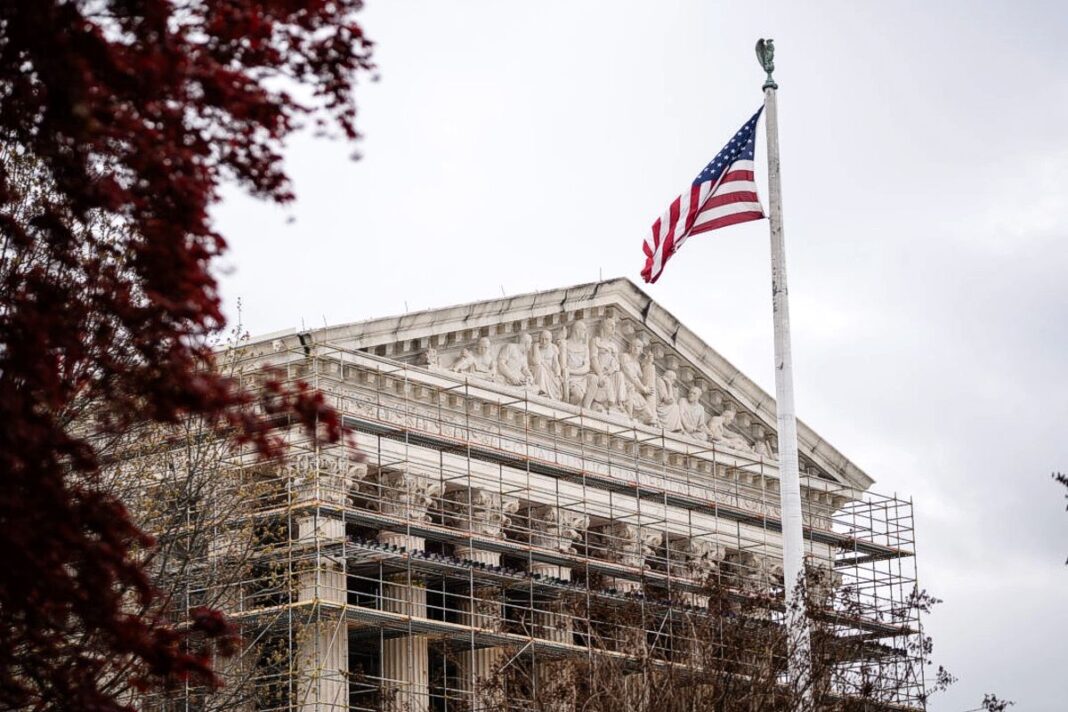
A federal appeals court previously halted the lawsuit, saying the companies had no right to sue.
The U.S. Supreme Court seemed inclined during an April 23 oral argument to revive a lawsuit filed by energy companies over California’s tough vehicle emissions standards.
The case is Diamond Alternative Energy LLC v. Environmental Protection Agency (EPA).
The lead petitioner, Diamond Alternative Energy, is a subsidiary of Valero Energy Corp.
Other petitioners include American Fuel and Petrochemical Manufacturers, Clean Fuels Development Coalition, Domestic Energy Producers Alliance, and Energy Marketers of America, as well as several agriculture industry organizations.
Much of the discussion during the oral argument focused on standing and redressability.
Standing refers to the right of someone to sue in court. The parties must show a strong enough connection to the claim to justify their participation in a lawsuit. Redressability, a key element of standing, is the ability of the courts to give a party the relief that it is seeking if it wins its case.
In April 2024, the U.S. Court of Appeals for the District of Columbia Circuit ruled that California had the authority to regulate tailpipe emissions. That court held that the energy companies bringing the legal action could not demonstrate that they had standing to sue.
In their petition filed on July 2, 2024, the petitioners argued that they would suffer economic harm if California, whose state economy is large, is allowed to continue imposing vehicle emissions standards that are more stringent than those mandated by the federal government.
California’s policy stances are influential, and several states have already adopted its regulatory framework for automobiles. California says its climate-action policies are needed to drive down demand for liquid fuel.
The petition said California is mandating “100 percent electric vehicles by 2036” and that this policy has the effect of “forcing electrification of the country’s vehicle fleet.”
The state’s goal is supported by the EPA and the National Highway Traffic Safety Administration, whose emissions and fuel economy standards “impose de facto electric-vehicle mandates in violation of their governing statutes,” the petition, which was filed in the final year of the Biden administration, stated.






